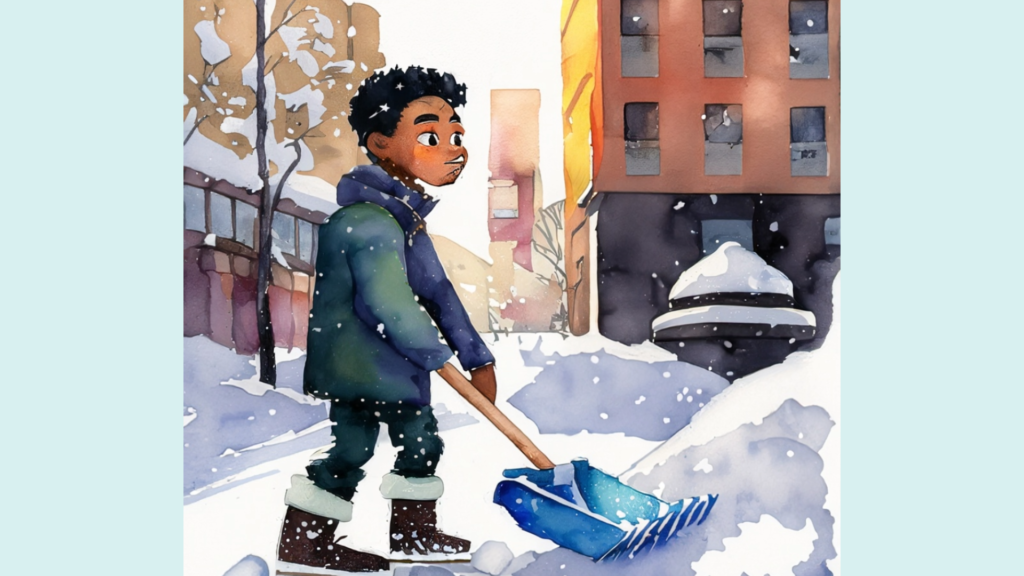

ぼくは今、札幌にすんでいます。
boku wa ima, sapporo ni sundeimasu
I currently live in Sapporo.

札幌はとてもさむい町です。
sapporo wa totemo samui machi desu
Sapporo is a very cold city.

冬には雪がたくさんふります。
fuyu ni wa yuki ga takusan furimasu
During winter, there is a lot of snowfall.

札幌には、おいしい料理が たくさん あります。
sapporo ni wa, oishī ryōri ga takusan arimasu
Sapporo has a lot of delicious cuisine.

とくに、札幌のラーメンは、とても おいしいです
tokuni, sapporo no ramen wa, totemo oishī desu
Especially, Sapporo ramen is very delicious.
| 今 いま ima | now |
| さっぽろ sapporo | the city in Hokkaido, the northernmost island of Japan |
| すんでいます sundeimasu | live in~ |
| とても totemo | very |
| さむい samui | cold |
| 町 まち machi | city, town |
| 冬 ふゆ fuyu | winter |
| たくさん takusan | a lot |
| ふります furimasu | fall |
| おいしい oishī | delicious |
| 料理 りょうり ryōri | cuisine, dishes |
| とくに tokuni | especially |
| ラーメン rāmen | ramen |
In Japanese, there are two types of adjectives. This time, we will learn about one of them called “い-形容詞“(”i-adjectives” ) The characteristic of i-adjectives is that they end with “い” (i)
Here are specific examples:
- たかい (takai): tall, high
- おもしろい (omoshiroi): interesting, funny
- あつい (atsui): hot
- さびしい (sabishī): lonely
- おいしい (oishī): delicious
・さむい 町
samui machi
a cold city
・おいしい 料理
oishī ryōri
delicious cuisine

ラーメンはとてもおいしいです。
Rāmen wa totemo oishīdesu.
Ramen is very delicious.
| かわいい kawaī | cute |
| 犬 いぬ inu | dog |
| 彼女 かのじょ kanojo | she |
| やさしい yasashī | kind |
| 中国 ちゅうごく chūgoku | China |
| 大きい おおきい ōkī | big |
Please rearrange the words
Q1: a very cute dog.
Q2: she is kind.
Q3: China is a very large country.
1. とてもかわいい犬。
2. 彼女はやさしいです。
3. 中国はとても大きい国です。
